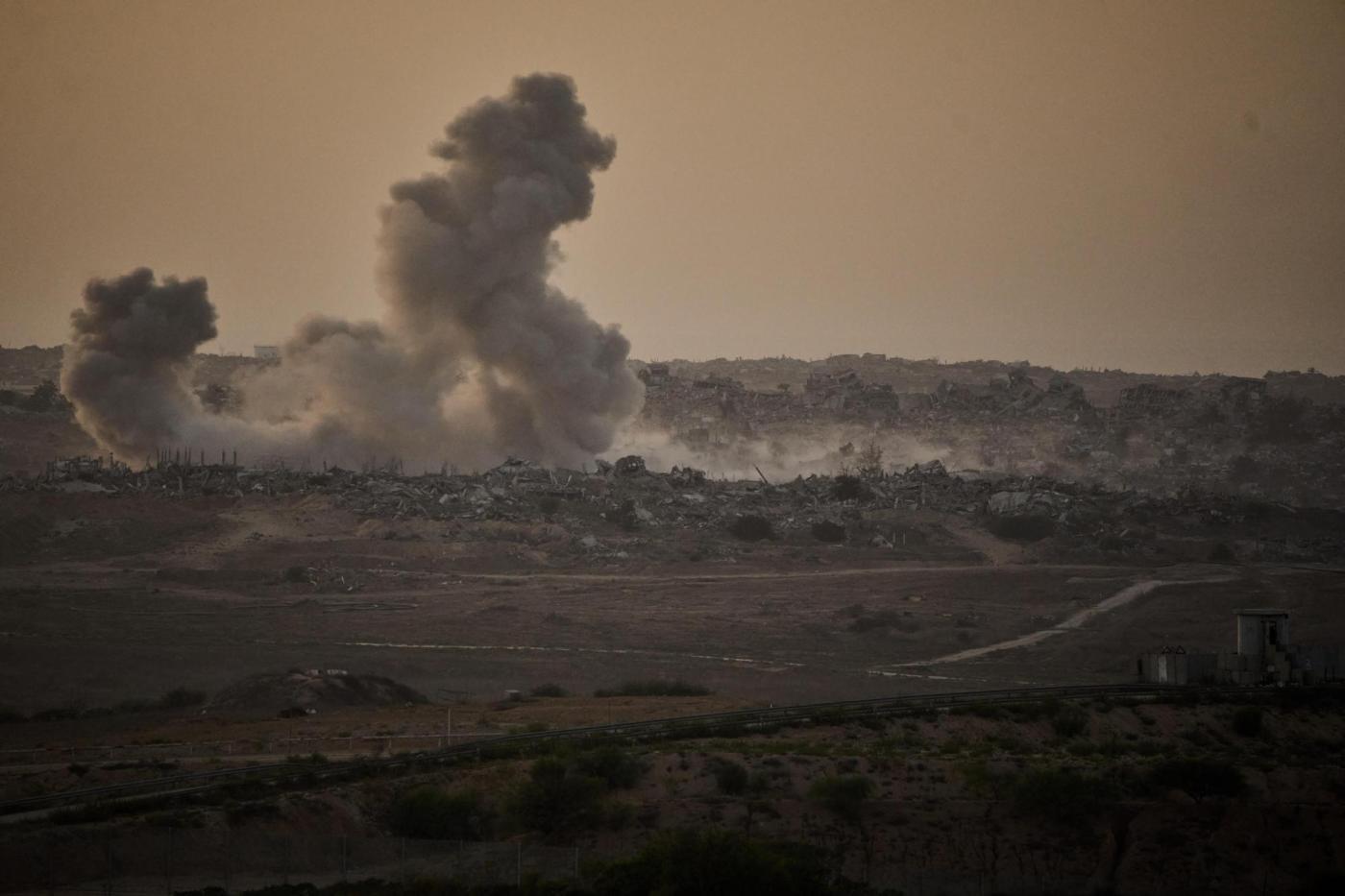UPDATE: Israel’s military is rapidly advancing preparations for the first phase of U.S. President Donald Trump’s controversial plan to end the ongoing war in Gaza and secure the release of all remaining hostages. Just hours ago, the army confirmed it has been ordered to “advance readiness” following Trump’s directive to cease bombing operations after Hamas indicated acceptance of key elements of his proposal.
This announcement marks a significant shift in military strategy, as Israeli forces have moved to a defensive-only posture in Gaza, refraining from active strikes. An unnamed official stated that no troops have been withdrawn from the area, indicating a complex and fragile situation on the ground.
The urgency of this development cannot be overstated. Trump is keen to fulfill his promises of achieving peace and securing the release of dozens of hostages as the second anniversary of the October 7, 2023, attack by Hamas approaches. His proposal, which has garnered widespread international support, including backing from Israeli Prime Minister Benjamin Netanyahu, seeks a truce while addressing humanitarian needs in Gaza.
Earlier today, Netanyahu’s office reiterated its commitment to ending the conflict that has claimed over 67,000 Palestinian lives, according to Gaza’s Health Ministry. This figure includes a disturbing number of women and children, as humanitarian conditions deteriorate in the region.
“We want practical implementation… We want a truce on the ground,” said Samir Abdel-Hady, a resident of Gaza’s Khan Younis.
Notably, discussions are underway for the release of hostages, alongside hundreds of Palestinian prisoners in Israeli detention. A senior Egyptian official involved in ceasefire negotiations stated that Arab mediators are preparing for a comprehensive dialogue aimed at unifying the Palestinian stance on Gaza’s future.
While Hamas has expressed willingness to release the remaining 48 hostages—approximately 20 of whom are believed to be alive—the group remains noncommittal about disarming, a critical component of Trump’s plan. Experts caution that despite apparent momentum, the gap between rhetoric and action remains significant.
Amir Avivi, a retired Israeli general, emphasized that while Israel may halt its offensive temporarily for the hostages’ release, military operations will resume if Hamas fails to disarm. Critics argue that Hamas’s willingness to negotiate may merely repackage its longstanding demands.
As families of hostages express cautious hope, concerns linger regarding the stability of any agreements. Yehuda Cohen, whose son Nimrod is held in Gaza, voiced skepticism about whether the deal will materialize, stating, “We’re putting our trust in Trump, because he’s the only one who’s doing it.”
As of now, Israeli troops maintain their siege on Gaza City, which has deteriorated into a combat zone, warning civilians against returning. With 400,000 people displaced in recent weeks, the humanitarian crisis deepens. Experts have flagged a looming famine in Gaza City, raising alarms about the dire conditions faced by those who remain.
The world watches closely as negotiations unfold and the potential for a truce hangs in the balance. The coming days will be critical in determining whether peace can be achieved or if the conflict will escalate further.
Stay tuned for more updates on this rapidly evolving situation as officials work towards a resolution that could reshape the future of Gaza.
